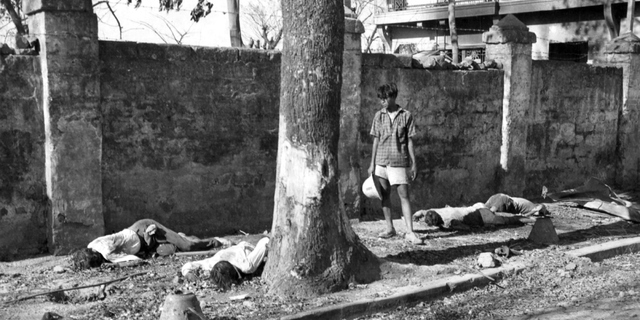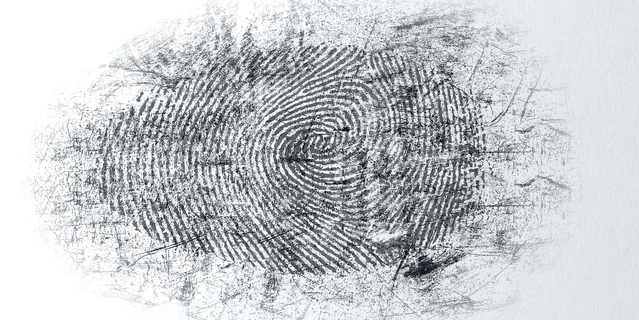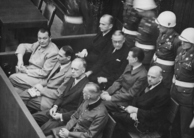|
Crime (tagged articles)
The keyword Crime is tagged in the following 29 articles.
2020, Vol. 12 No. 10
Punishment from the legal system is typically seen as a proper response to lawbreakers and criminal activity. However, we do not consider how punishment enables law enforcement and the legal system to further oppress marginalized and minority populations... Read Article »
2018, Vol. 10 No. 01
This paper analyzes the ongoing drug war being waged between Mexican drug trafficking organizations (DTOs), their rivals, and the U.S./Mexican governments. This analysis is conducted through the lens of drug control; namely, through an examination... Read Article »
2017, Vol. 9 No. 03
World War II ranks among the deadliest military conflicts in history. From 1939-1945, the estimated number of casualties worldwide exceeded 60 million.[1] The United States suffered military fatalities in excess of four hundred thousand, and the... Read Article »
2016, Vol. 7 No. 1
According to the International Centre for Prison Studies, the number of women in prisons in Latin America has almost doubled since the 1990s. Most women in prison are incarcerated for drug related Crimes, and although women are still a minority... Read Article »
2016, Vol. 8 No. 06
One of the most well established assertions in criminology is that of the relationship between Crime and age (e.g. Sampson & Laub, 1992, 1998; McAra & McVie, 2012), in which developmentally orientated researchers attempt to explain how Crime... Read Article »
2016, Vol. 6 No. 2
This paper explores the role of public institutions in reducing or fostering neighborhood violence and Crime. Understanding institutional density as a neighborhood effect, this paper examines how ten public institutions and structures influence... Read Article »
2016, Vol. 3 No. 1
It is generally accepted among researchers that incidence of Crime is on average higher around vacant and abandoned properties because they can serve as safe havens for criminal activity. However, there has been little research investigating the... Read Article »
2016, Vol. 8 No. 02
A companion article (Has New Zealand Identified the Causes of Crime?) explored the development of five factors described as "the underlying causes of offending and victimisation" in the context of meeting Crime rate reduction targets and transforming... Read Article »
2016, Vol. 8 No. 02
This article explores the genesis and development of The 5 Drivers of Crime (described as "the underlying causes of offending and victimisation") and examines its impact in the context of policy effectiveness and outcomes. The ‘drivers of... Read Article »
2015, Vol. 7 No. 10
This research paper thoroughly explains the concept of money laundering and examines the costs that are endured by the governments, financial institutions, but most importantly individuals who are most vulnerable to the influence of organized criminal... Read Article »
2015, Vol. 5 No. 1
Organized Crime and terrorist organizations cannot be battled by force alone; anti-money laundering (AML) techniques have become key tools to trace these individuals through their finances. Every country has an interest in implementing internationally... Read Article »
2015, Vol. 7 No. 04
The question of how to lower Crime rates has baffled criminologists and law enforcement officials for decades. Over the years, many different models were developed to attempt to lower Crime rates. In 1979, Herman Goldstein published an article outlining... Read Article »
2014, Vol. 7 No. 2
The creation of the Nuremberg Court following World War II exemplified international cooperation, particularly between the Great Powers: the United States, France, the Soviet Union, and Great Britain. Expounding the benefits of justice and the rule... Read Article »
2014, Vol. 1 No. 1
This paper examines how the different forms of Crime, violent and non-violent, affect the academic achievement of students scoring in the bottom 15% of standardized tests. Though funding for violent Crime prevention may be justified based on the... Read Article »
2014, Vol. 6 No. 03
The need for individuals to categorize themselves and others based on gender has guided the way individuals interact with one another throughout history. The construction of gender, particularly when it comes to young males, has led to the amplification... Read Article »
2013, Vol. 4 No. 1
This is a case study looking at how the legal system is portrayed on prime time network television Crime dramas in respect to suspect treatment, the case building process and trial length. Through content analysis, it compared the exaggerations... Read Article »
2013, Vol. 5 No. 09
Antisocial personality disorder (ASPD), also known as dyssocial personality disorder, is a mental illness that is characterized by a reckless disregard for social norms, impulsive behaviour, an inability to experience guilt, and a low tolerance... Read Article »
2013, Vol. 5 No. 08
The Sopranos (1999-2007) opens with its lead character, Tony Soprano (James Gandolfini), unenthusiastically meeting his therapist, Dr. Jennifer Melfi (Lorrain Bracco) for the first time. He is reluctant to trust a female analyst; nevertheless, he... Read Article »
2013, Vol. 3 No. 1
The international drug trade and the power of drug cartels have perplexed both analysts and policy makers for years. As drug production and trade grow, cartels have climbed to unthinkable heights of power and, in some cases, have crippled governments... Read Article »
2012, Vol. 4 No. 09
The efficacy of three strikes laws has been a topic of contention among researchers since the first such piece of legislation was implemented in the United States nearly two decades ago. With the benefit of hindsight, it is possible to trend their... Read Article »
2012, Vol. 2011/2012 No. 2
This could be referring to Nazi propaganda from the 1930s. However, it is, in fact, an ideology that is gaining influence in contemporary Europe. This time, allegedly, it is not Jews that have a plan to take control over Europe; it is Muslims. The... Read Article »
2011, Vol. 3 No. 11
Since the beginning of criminological research there has been an ongoing debate on the correlation between genetic characteristics and criminal behavior. There have been numerous studies and experiments conducted to help eliminate some of the unknowns... Read Article »
2011, Vol. 3 No. 10
On November 21, 1945, Robert H. Jackson, the Chief Prosecutor for the United States of America opened the prosecution’s case against German defendants in Nuremberg, Germany. The war in Europe had ended only six months earlier, many of the... Read Article »
2011, Vol. 3 No. 06
This project examines the role of the Left Hegelian school of philosophy in Crime and Punishment by Fyodor Dostoevsky. Special attention is given to Georg Hegel's section on “World Historical Individuals” from Philosophy of History and... Read Article »
2011, Vol. 3 No. 03
Violence undermines an inclusive national identity that considers those of other races, classes and creeds as compatriots, for as Mirowsky and Ross (1983: 238) note, “When other people in one’s life have become a hostile army, social... Read Article »
2011, Vol. 3 No. 01
The search for the criminal personality or super trait has captured both the minds and imaginations of academics and the wider community (Caspi et al., 1994). Partly, this is due to a stubborn aversion to the notion that normal, regular people rape... Read Article »
2010, Vol. 2 No. 06
Martin Luther King, Jr. once wrote that “to ignore evil is to become an accomplice to it.”[1] Although this statement was meant towards the civil rights movement, the idea equally applies in other instances, especially in times... Read Article »
2010, Vol. 3 No. 2
Human trafficking is a global issue that is only recently being recognized with global action. The United Nations' Protocol to Prevent, Suppress and Punish Trafficking in Persons, Especially Women and Children (UNTIP), the first global initiative... Read Article »
2010, Vol. 2 No. 02
Every single person living in the United States today is affected by juvenile Crime. It affects parents, neighbors, teachers, and families. It affects the victims of Crime, the perpetrators, and the bystanders. While delinquency rates have been... Read Article »
Expedited Article Review
Submit an article and get a decision fast.
If you need a fast decision, INQUIRIES Journal offers expedited processing of your submission for a small fee. Depending on the expedited review option you choose, you can receive a decision in as few as 5-days.
In addition to a shorter review period, the fee supports the journal's continued operation and open-access publishing model. Standard submissions are always free. Submit Now » - Submit an Article to Inquiries Journal -
|



































